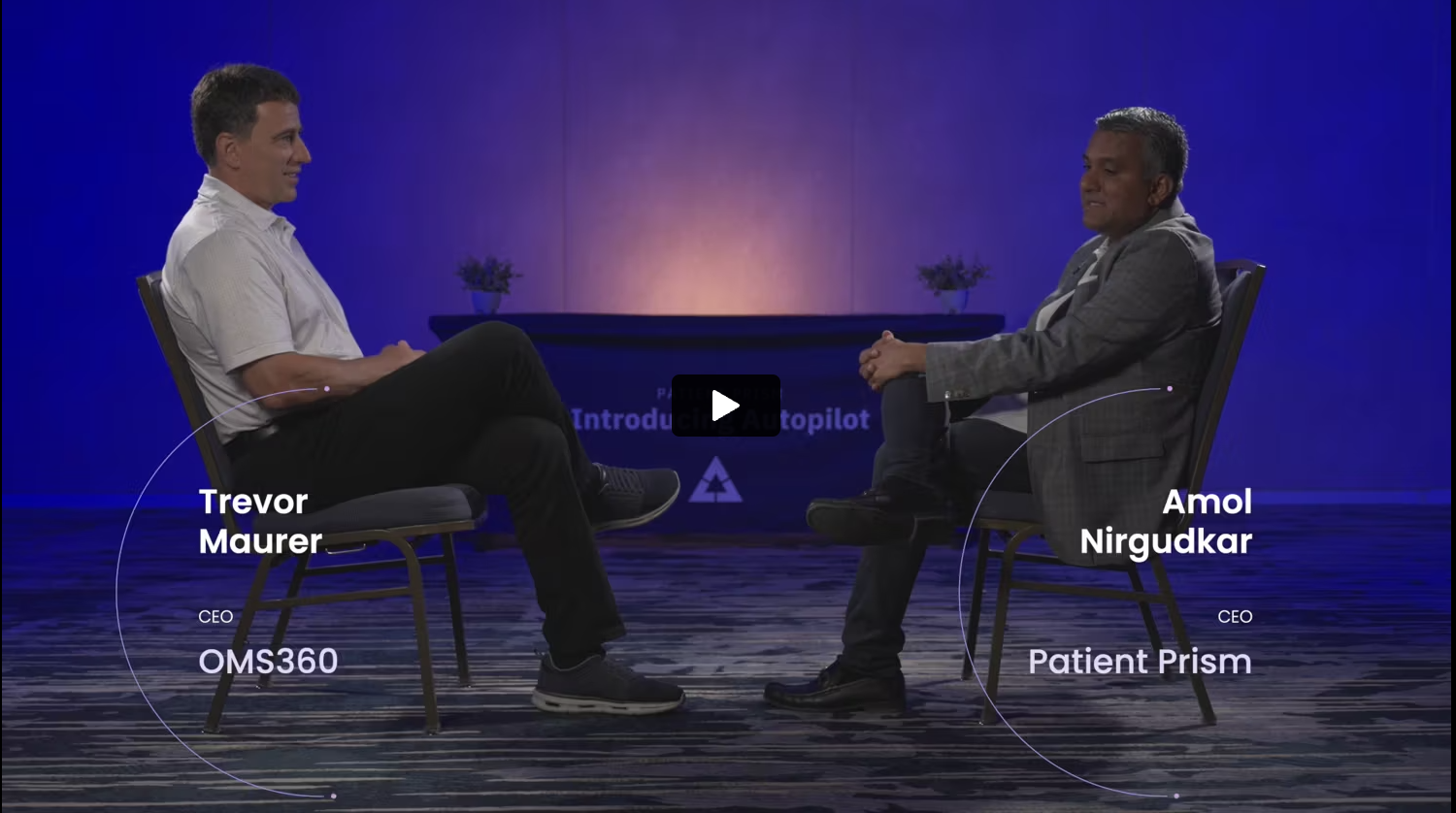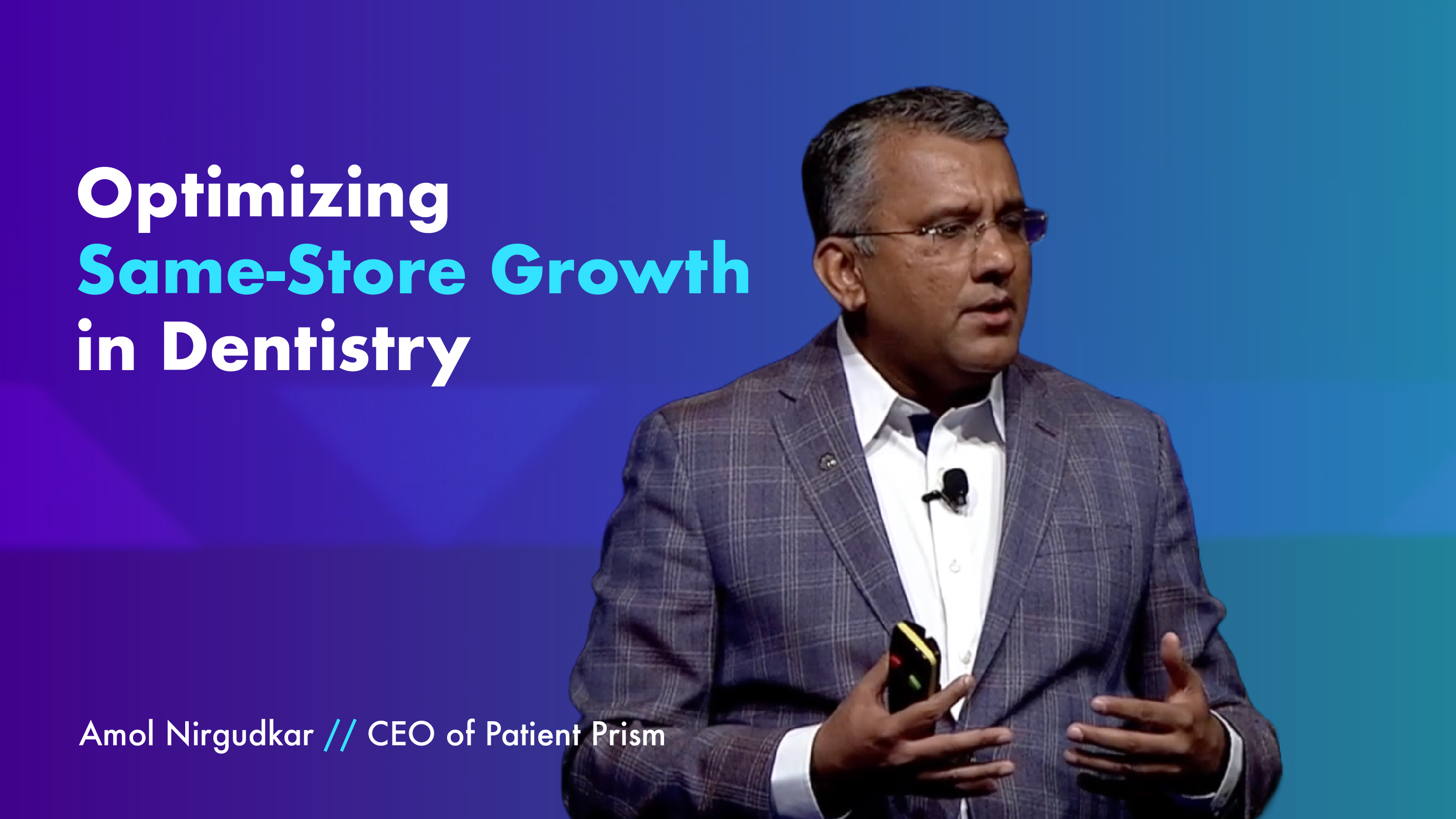At the annual Dykema DSO Conference, it has become a tradition for Patient Prism’s CEO, Amol Nirgudkar, to interview Steve Bilt, CEO of Smile Brands, about the most recent DSO trends. In 2023, DSOs are finding it difficult to achieve same-store growth. The labor shortage, interest rates, and staff turnover for higher wages have had a painful impact.
Steve Bilt: Struggling Same-Store Growth
Nirgudkar acknowledges that DSO growth is slow in 2023. Bilt has several relevant thoughts about why.
“Go back COVID and social unrest, the stimulus in the economy, and now the response by the Fed to try to slow it down,” says Bilt. “Couple that with the fact that we have major demographic things happening in our sector. Our population is aging and as people get older they need more dental care. At the same time, people have left the dental workforce or are choosing to work fewer hours. Those things are creating pressures on us that are painful.”
We also thought we would be coming out of the challenges of COVID and the economic recessions, so we are disappointed, Bilt muses. “And so, we’re in this phase of disappointment. I think that’s making it painful.”
Bilt continues, “Yesterday, I was on a panel and they asked me, ‘What are you doing to drive same-store growth?’ I said, ‘First and foremost, I have to be staffed.’ And it’s not just providers. So, a great dentist might work three operatories at the same time. A hygienist might have two chairs filled. But if you have only one dental assistant, that doctor, no matter how good he or she is, is really going to work one chair effectively. And if they’re down a sterilization person, they’re not turning rooms as quickly. If they’re down up front, then patients aren’t getting seated as quickly. So, all these things are challenged, and they show up in same-store growth.”
Patient Mix & Team Turnover
Nirgudkar observes that it’s difficult to triage for revenue when under pressure. “You’re flying the entire airline with basic economy seats. What patient mix tactics should we be using?”
Bilt replies, “Your loyal patients are the ones who come to you year in and year out. They’re the ones who refer you patients, so you must take care of them. But they don’t need as much restorative work. If you trade off their hygiene chair time for new patients, you might get away with it for six months but if you push them off 12 months or more, they become someone else’s patient. It’s a balancing act, and we do that through scheduling discipline.”
The same goes for balancing team raises. Bilt says, “When those who stay must train new employees and do double duty, the veterans struggle more. They start to think: What do I have to do? Quit to get a raise? And then you are in another cycle of pain. It’s another difficult balance to strike.”
Steve Bilt: Forced to Focus on Balance Sheets
Nirgudkar asks, “What should distressed DSOs do?”
Bilt replies, “When money is free, most people don’t realize they have a balance sheet. We have a lot of people who made it all the way through an investment period without ever having to look at their balance sheet. But when money is tight, your balance sheet is your oxygen.”
Bilt advocates for looking at the balance sheet and determining how much value needs to be created to make the business work. Long-term value is created by driving same-store results. Some will consolidate with others and use their combined synergy.
Because blind optimism will not convince bankers to loan money, when the EBITDA is not rising, “it’s time to move towards radical transparency,” says Bilt. “You’ve got to tell investors that you are redoubling your efforts, give them what they need to know, and be realistic.
“It’s like stacking nickels and building the business back. It’s tough but if you are the best team for the job, they are likely to wait and give you the time to do what you need to do because that’s their best value-creation plan.”
Time to Over Communicate
Nirgudkar asks, “What should we do to improve same-store growth?”
“Well, you have to come in closer and closer to the bullseye,” says Bilt. “Ask: What’s actually producing that EBITDA today? How do I enhance it?’ You stop swinging for the fences, and you start hitting singles. You get on base.
“As you are simplifying, you usually find some things that you can peel back and return to later. At the same time, you’ve got to double down and work on your culture. Because if you don’t double down and work on your culture, the people that are collecting your money and booking your appointments and all the other things that happen, stop working as hard because they’re worried; they’re nervous.
“Take time to be transparent with your people. Here’s why we’re doing what we’re doing. Here’s what’s happening. Breathe out. That’s behind us now. Well, what’s going to happen next? Are we getting funding? No, but we can’t sit around and worry about that. If we all do our jobs, maybe just 5% better we can keep our people. We may not get raises but this is our reality. If you say, ‘Yes, we get a cut but that’s the last of what we need to do,’ some people still might leave but the ones who stay tend to move closer to you.”
Three Tips for 2023
Nirgudkar asked, “What two or three things are you doing right now that others can be doing?”
Bilt shares three:
“We’re taking stock of our culture. We’re asking: What created a great culture at our company historically? We’ve realized there are some things that have lapsed. For example, we’ve gone back to celebrating everyday miracles. Recently, we had over 300 support people dial in for a 30-minute call to share their miracles, and the overflowing desire to talk more was so great that we did it again two weeks later. People want the connection.
“Currently, we operate within a restricted balance sheet environment. It takes discipline. We don’t go after everything. We are managing risk. We ask: Where can I get the most likely return, not just the best or biggest return?
“We are focused on simplifying what our people do. We are implementing products that automate some of the load. We’re also asking: What does this process look like? Is there an extra step? Are we wasting time? What can we do? When people see you trying to simplify their jobs, they feel hope.














 A few minutes can change everything.
A few minutes can change everything.
 Build Your Million-Dollar DSO Playbook
Build Your Million-Dollar DSO Playbook Seats are limited to 150 and they’re filling fast!
Seats are limited to 150 and they’re filling fast!